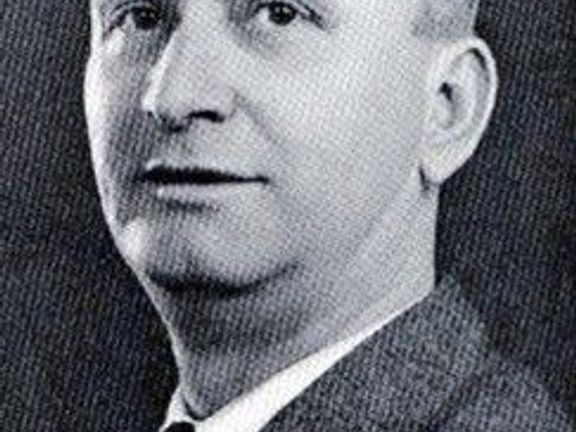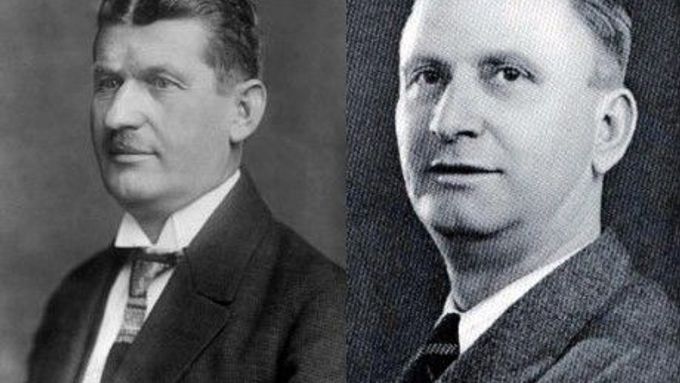Prague - It took 60 years to clear the name of Jan Antonín Baťa, one of the founders of the world renown Baťa shoe empire.
In 1947 J. A. B. was sentenced in absentia to 15 years in prison for failing to support the anti-Nazi resistance movement during the World War II.
For decades the Baťa family has vehemently denied the charge arguing Jan Antonín was always a loyal citizen of Czechoslovakia.
Today the Prague City Court annulled the 1947 sentence and the state prosecutors came to believe Jan Antonín Baťa was innocent. Their verdict is final.
"There was no crime committed. The case has been discarded with no further action needed," said Štěpánka Zenklová, spokeswoman of the state prosecutor's office in Prague.
Descendants fought for years
Jan Antonín's descendants, including his nephew Tomáš Baťa, fought to clear his name for the past decade.

Infobox
- Jan Antonín Baťa was a younger half-brother of Tomáš Baťa. He was born in 1898 to Antonín Baťa senior in his second marriage. Jan Antonín took over the Baťa shoe empire after the death of his brother Tomáš on 12 July 1932 in a plane crash near Zlín.
- Under Jan Antonín the company expanded globally and within ten years the Baťa company employed over 100,000 people. Soon it became the world´s largest shoe making company.
- He contributed to development of the city of Zlín. He founded the Training Centre, school of Art and there were exhibitions of modern art held in the city. The second tallest skyscraper in Europe was built during his times in Zlín it is known under the name of 21st Building.
- When Czechoslovakia fell under the control of Nazis, Jan was arrested by gestapo but later he managed to flee Czechoslovakia. He wanted to settle in the United States but the American authorities did not prolong his visa. Instead they blacklisted him, which meant no one could do business with him. He then moved to Brazil.
- In 1947 in Prague he was sentenced in absentia to 15-year imprisonment. At that time he lived in Brazil. In 1965, three years before his death, he granted shares in his company to his nephew Tomáš Baťa.
"No Baťa ever betrayed his Czechoslovakian blood," said Tomáš Baťa after a renewed court hearing took place in June this year.
He came to the Czech Republic all the way from Canada to defend his uncle. He maintained his uncle was innocent and that it was the Communists' trumped-up charge to tarnish the Baťa family's credibility.
Today the state prosecutor submitted letters and documents to prove Jan Antonín Baťa had financed the Czechoslovak government-in-exile all over the world with thousands of dollars.
On top of that, the City Court also obtained certified testimonials of Baťa's Jewish employees whom Jan Antonín helped escape from Nazi-occupied Czechoslovakia. These Jewish families would have been otherwise transported to concentration camps.
No chance to defend himself
The City Court also reviewed certified documents, dated before the 1947 verdict, in which Jan Antonín Baťa complained to Czechoslovakian authorities that he had not been interrogated and therefore could not defend himself.
Such a chance was given to various war criminals, for example Karl Hermann Frank, a high-ranking Nazi official responsible for various atrocities in the war-time Protectorate Bohemia and Moravia, but not to Jan Antonín.
"I have never done anything against the Czechoslovakian nation. The only thing I would like to do now is to go back to Zlín and serve my people," said Jan Antonín in a letter to Czechoslovakian authorities as an attempt to defend himself.
He also stated that the post-war Czechoslovakia's main interest in prosecuting him was to seize the Baťa family's assets and property.
In the pre-war times the Baťa shoe company was one of the biggest enterprises in Central Europe, having factories and outlets worldwide.






